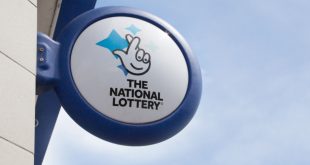
Virtually all national newspaper reports on last month’s UK Government review of gaming machines and social responsibility measures focused on the headline-grabbing decision to reduce the maximum stake on B2 gaming machines (FOBTs) from £100 to £2.
Industry media was not slow to pick up an accompanying announcement on the DCMS website that said: “In order to cover any negative impact on the public finances, and to protect funding for vital public services, this change will be linked to an increase in Remote Gaming Duty, paid by online gaming operators, at the relevant Budget”.
That, in turn, provoked anger on the part of online gaming operators and the Remote Gambling Association, describing it as “hardly fair that one sector pays for the alleged faults of another”. It’s clear that the FOBT debate and its repercussions has still further to run.
It’s hardly surprising then that less publicity was given to the other matters contained within the Government review. That’s unfortunate because they have fairly fundamental bearing insofar as the whole gambling industry is concerned.
What has been missed by many is that, in addition to the measures announced on gaming machines, the Government is seeking to “drive action” across online, advertising, research, education and treatment (RET) and more widely, the public health agenda with regard to gambling. It’s not all bad news but, as I make clear below, “collaboration” is now the name of the game.
Online Gambling
It is no surprise that the UK Government believes more is needed to be done to protect consumers who gamble online because that was made clear at its consultation stage in October last year. The action that the Government wants to see falls under the following headings:
- Better Use of Customer Data
The Government is demanding that online operators use customer data effectively to identify potentially harmful behaviour and target interventions to reduce the risk of harm occurring. It expects operators to act now and trial a range of measures to strengthen the existing protections in place. It warns that if operators fail to demonstrate sufficient progress, both it and the Gambling Commission have powers to introduce additional controls or restrictions on the online sector.
- Strengthening Player Protections
The Government has welcomed the ongoing focus of the Gambling Commission to assess the effectiveness of current protections and to enhance these wherever possible to reduce the risk of gambling-related harm, with specific reference to age verification, improving terms and conditions, identifying risks to players earlier and customer interaction policies.
- Use of Technology to Develop Stronger Player Protections
The Government recognises that by developing and using algorithms to identify potential harmful play, gambling operators have been at the forefront of using data and technology to protect players. It says that it needs greater collaboration with operators to ensure that its own understanding evolves and has announced a Government-sponsored roundtable to bring together stakeholders from the gambling and technology sectors with a view to achieving a “wider roll-out of best practice” that it says “will include helping to develop understanding of, and best practice around, online advertising and marketing”.
Advertising
On a positive note, the Government believes that good progress has been made by regulators, industry and broadcasters since it set out a package of advertising measures to help protect those who are most vulnerable, when launching its October 2017 consultation.
It cites new guidance on tone and content to help protect those vulnerable to harm published in February by the Committees of Advertising Practice and further CAP guidance on children and young people that is due later this year. It also mentioned:
- the Commission’s consultation on proposed LCCP changes (including in relation to toughened rules on marketing and advertising), a response to which is expected next month,
- a major responsible gambling advertising campaign, due to be launched later this year, that will seek to raise public awareness of the risks associated with gambling and how to mitigate these, including where to seek further information and help if needed,
- the forthcoming implementation on 30 June of the updated Industry Group for Responsible Gambling code on socially responsible gambling advertising to ensure that a responsible gambling message appears for the duration of all TV adverts, and
- substantial research, commissioned by GambleAware and running until the beginning of 2019, on the effects of marketing and advertising on children, young people and vulnerable groups, that is due to be completed in Q2 2018.
Research, Education & Treatment
The Government says that “the overarching focus of this review is to ensure the right balance between a sector that can grow and contribute to the economy, and one that is socially responsible and doing all it should to protect consumers and communities”. Again striking a positive note, it concludes that, together with health and local authority partners and bodies in the voluntary system, steps are being taken to improve understanding of gambling-related harm, how to prevent and reduce it, the need for treatment and the most effective means of delivering it.
Importantly, for the first time, the Government has formally recognised gambling-related harm as a public health issue and has asked Public Health England to conduct an evidence review to inform action on prevention and treatment.
On RET funding, the Government acknowledges that whilst industry contributions to GambleAware in 2017/18 totalled £9.4m (i.e. a 16% increase from 2016/17), some gambling operators do not give to GambleAware at all, while others, including the largest operators, donate large sums. To the relief of many operators, it makes no recommendation that the present voluntary RET contributions should be replaced by a statutory levy. Instead it encourages industry to continue working with GambleAware “to provide security of funding”. However, no-one should rest on their laurels, for the reasons I explain below.
The Gambling Commission’s Position
The Commission has welcomed the Government review, underlining that the reduced stake on FOBTs alone will not be enough to address the risks of harm that can come from all forms of gambling, which is why it will continue to act in other ways to reduce those risks, including:
- delivering enhanced consumer protection for online gambling in the areas of customer verification, fairness and interaction,
- implementing strong penalties for businesses that breach advertising guidelines, and
- reviewing gambling product characteristics to identify whether particular features pose greater risk of harm than others.
This follows on from publication last month by the Responsible Gambling Strategy Board (RGSB) of its annual assessment of how much (or perhaps more accurately, how little) progress has been made with delivering year two of its three year National Responsible Gambling Strategy. The RGSB concluded that only a minority of operators seem really to understand what is required of them if the Strategy is to be successful and that there is a great deal to be done over the next 12 months, requiring “considerable effort from everyone concerned” on the basis that “failure would, or ought to, call into question some of the assumptions on which the current framework for the regulation of gambling is based”.
This prompted a response by the Commission to the effect that:
- this is not a challenge that the Gambling Commission can address on its own,
- a real concerted focus is required “by everyone that has a part to play” and
- whilst strong partnerships are needed with other regulators, consumer representatives and government, the most important requirement is the need for “the industry to step up and work to raise standards and reduce the risk of harm”.
That was followed up by comments made by Neil McArthur on 22 May, in his maiden public speech as Chief Executive of the Commission, when he said:
- in relation to RET funding: “I want to see the industry up its game in meeting the expectations set out in the National Responsible Gambling Strategy. This includes securing more funding for Research Education and Treatment. If the industry can’t provide what is needed, there is a strong case for a statutory levy”,
- in relation to rates of problem gambling: “Stable statistics are not, in my view, a good news story. I want to see problem gambling rates reduce. We want to stimulate a culture of innovating, trialling and evaluating different measures to identify what works best to protect consumers. Part of that is understanding the consumer, the customer much, much better”, and
- in relation to diversity: “We want the industry to be innovative, to innovate and collaborate to better protect consumers. Collaborate by sharing ideas, best practice and lessons learned. We want to support the industry to do that, and we will”.
Collaboration
“Collaboration” has become the Commission’s new buzzword. Operators should take note. It is something that they should be placing high on their regulatory agenda now, whilst they still have a chance of avoiding a statutory RET levy and the imposition of yet further invasive regulatory hurdles to their businesses.
They should also take heed of the following comments made by Neil McArthur in his follow-up speech at a pan-industry “Safer Gambling Collaboration” day on 30 May, hosted by Skybet, that focused on the challenge “we all face … how to balance consumer choice and enjoyment against the risks gambling can create and its impact on wider society”.
He said: “We want to do more to help things go right in the first place – to provide support and guidance, and offer a forum for sharing practice. For example we are currently looking at a forum which brings together the industry, us and consumers which will look at ensuring the voice of the consumer is represented in customer interaction work. We want to support the industry in raising standards, not just intervene when things go wrong, and we need to take action. Over the next year we’ll be identifying more opportunities where we can provide more guidance and support, whether this is through events or helpful information and support tools”.
We already know from the Commission’s March 2018 formal advice to DCMS that this year alone, in line with its own 2018-21 Strategy and 2018-19 Business Plan, it is:
- assessing the effectiveness of the current tools available to consumers to manage their gambling,
- reviewing its requirements on the protection of customer funds,
- considering whether gambling on credit should continue to be permitted,
- considering whether it needs to make changes to ensure that consumers can withdraw funds more easily, and
- reviewing gambling product characteristics to identify whether particular features pose greater risk of harm than others.
We know too from the Commission’s Statement of Principles for Licensing and Regulation that the Commission is committed to working “with licensees and other stakeholders in regulating gambling in the interests of consumers and the wider public” and that, in so doing, the Commission’s aim should be to ensure that the minimum additional burdens necessary to promote the licensing objectives are imposed on the industry.
I say this, bearing in mind that paragraph 2.7 of the Statement of Principles states that “the Commission will ensure that its regulatory approach does not impose unnecessary regulatory burdens in upholding the licensing objectives in the Act, and does not unduly hinder the economic progress of licensees”.
This is underlined by paragraph 2.12, that states: “The Commission will seek to provide a fair regulatory framework within which existing operators and new entrants can compete and grow with as limited a regulatory burden as is compatible with the protection of consumers, the protection of the wider public, and the upholding of the licensing objectives”.
In my view, it really is time for the different gambling industry sectors (both remote and non-remote) to put aside their past differences and to focus on increased collaboration both between themselves and with the Commission to achieve what must surely be a common goal – a sharing of best practice consumer protection guidelines to make gambling fairer and safer for all.
____________________
David Clifton – Director – Clifton Davies Consultancy Limited
The Betting industry’s regulatory agenda and current context will be discussed and debated at the upcoming ‘Betting on Sports Conference’ (#boscon2018 – Olympia London-17-20 September 2018). Click on the below banner for more information…












